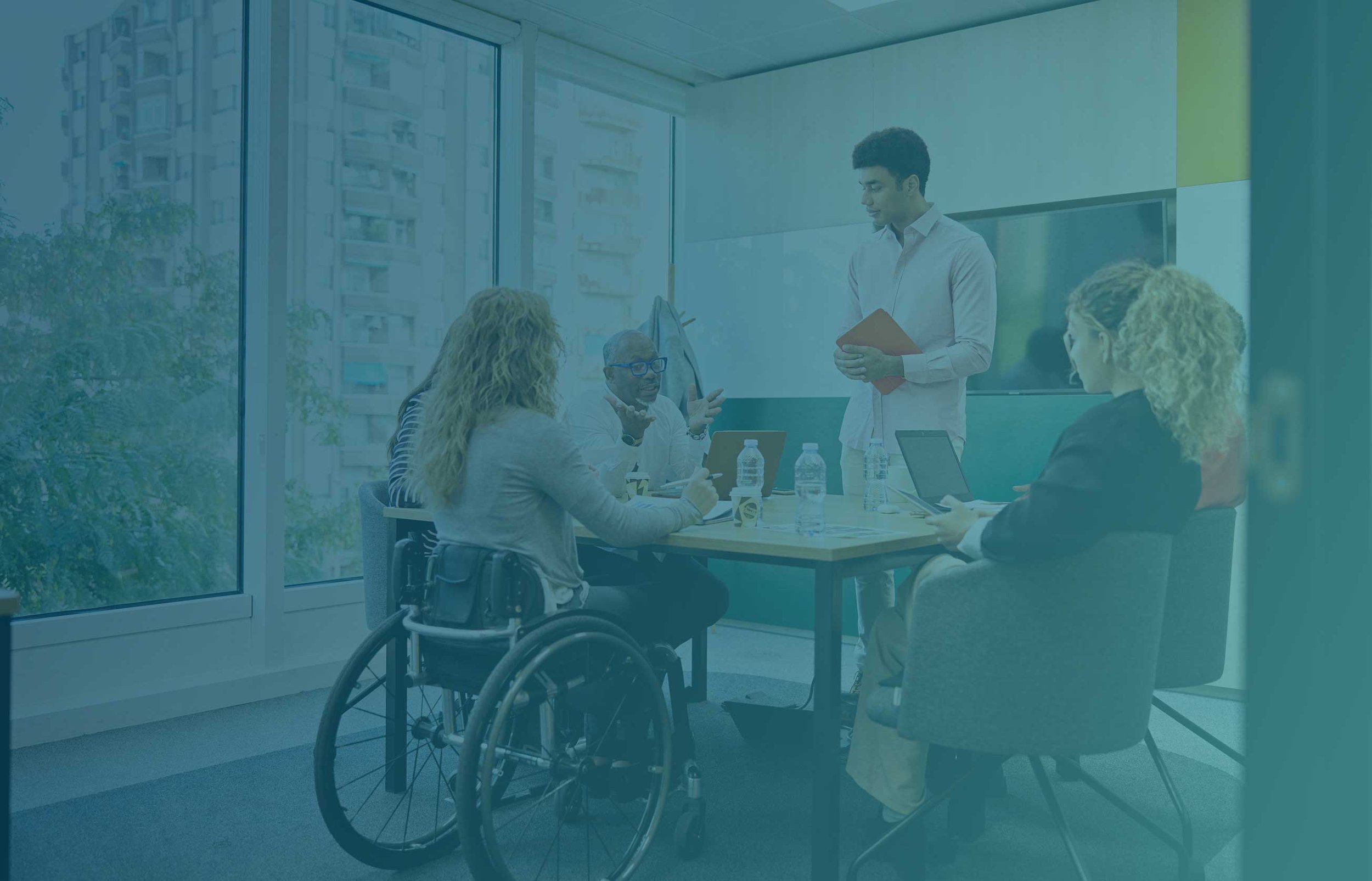
The Elevate Journal
- Leadership
- Nonprofit Support
- Accessibility
- Community Engagement
- Equity
- Data Collection
- Learning
- Internal Culture
- Collective Impact
- Storytelling
- Compassion
- Operations
- Systems Change
- Facilitation
- Impact
- Evaluation
- YPAR
- Fundraising
- Focus Groups
- Data
- Reflection
- Surveys
- Services
- Collaboration
- Strategy
- Stakeholders
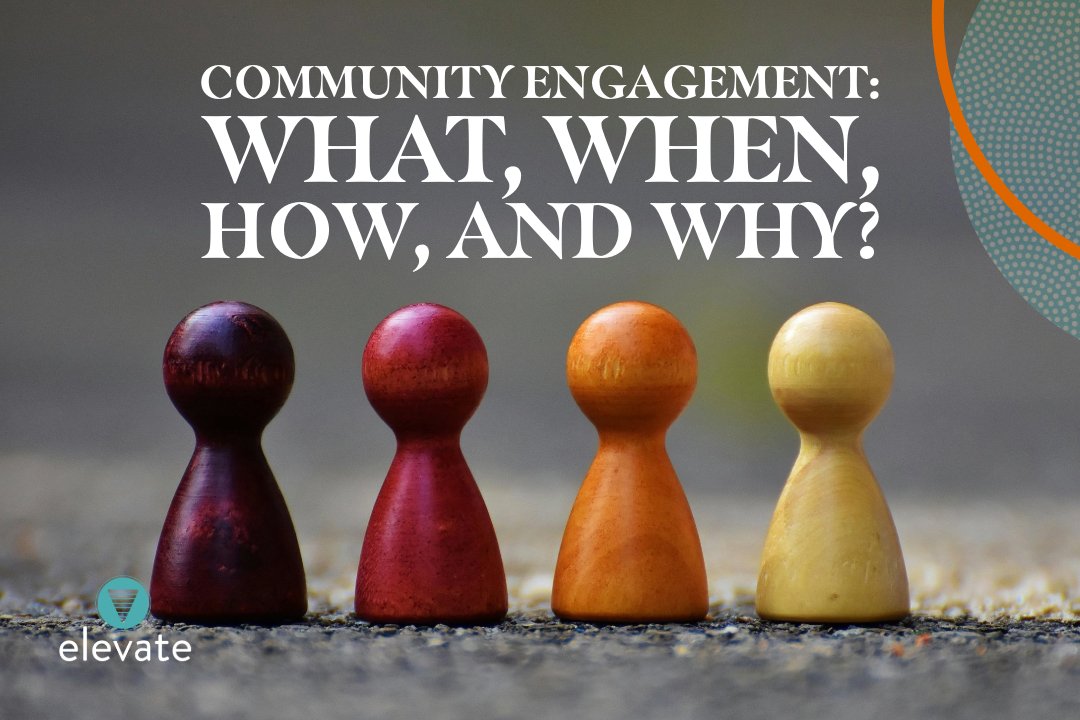
Community Engagement: What, When, How, and Why?
Community engagement, rooted in civic engagement principles and community organizing, has evolved significantly. Its importance has grown across the nonprofit, public, and private sectors, leading to varied experiences, definitions, and interpretations.

Navigating the Long Game of Changing Systems Part 3: Embedding and Sustaining Change: Middle-Late Years
Collaborating across organizations to address root causes and change conditions at the system level is a messy, long experience. There are so many different approaches - Collective Impact, Systemness, grassroots organizing, and so on - each with their own principles, frameworks, tools, and ways of doing the work “correctly.”

Navigating the Long Game of Changing Systems Part 2: Testing, Learning, and Refining: Early-Middle Years
Collaborating across organizations to address root causes and change conditions at the system level is a messy, long experience. There are so many different approaches - Collective Impact, Systemness, grassroots organizing, and so on - each with their own principles, frameworks, tools, and ways of doing the work “correctly.”

Navigating the Long Game of Changing Systems Part I: The Early Years
Collaborating across organizations to address root causes and change conditions at the system level is a messy, long experience. Over the next few months, I’m going to be exploring the life cycles of collaborative efforts and breaking them down into their essential elements, based on my own research, professional experience, and Elevate’s work in this space with partners working to improve systems across a range of issues.
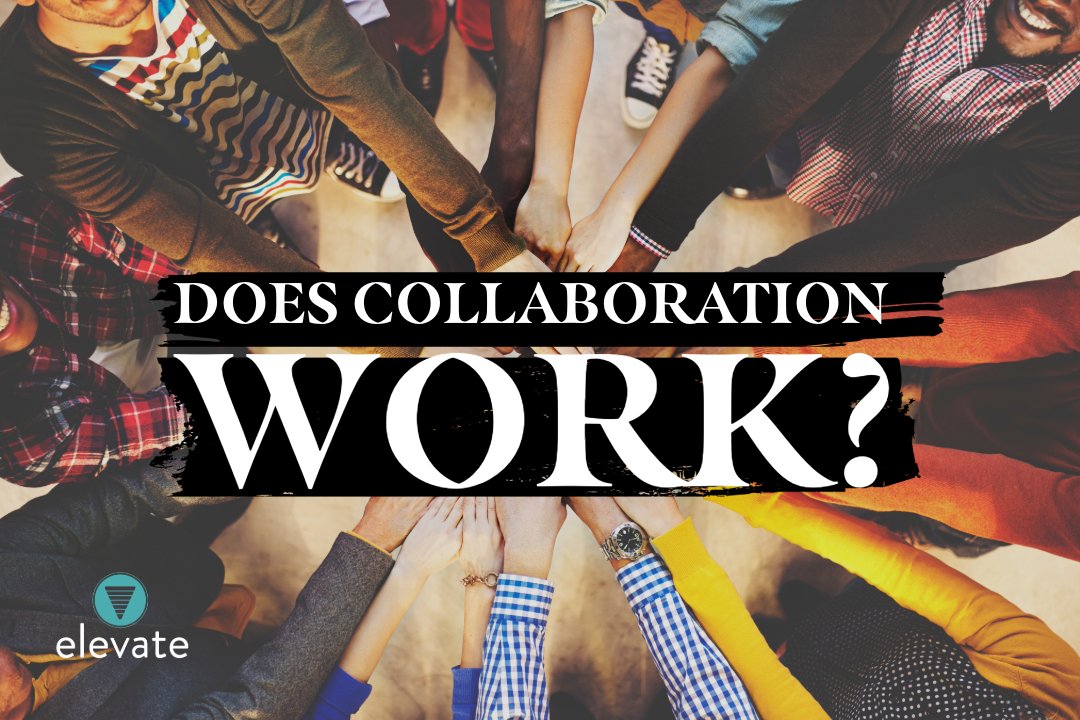
Does collaboration work?
Somebody asked me the other day if I really believed in collaboration. We were kvetching about the challenges of doing Collective Impact work, and at the time, I sort of laughed it off and made light of it. But it made me think…do I really think collaboration - amongst organizations within a social service landscape, to solve a specific social challenge or improve outcomes for a certain population - works? And if so, what makes it successful?
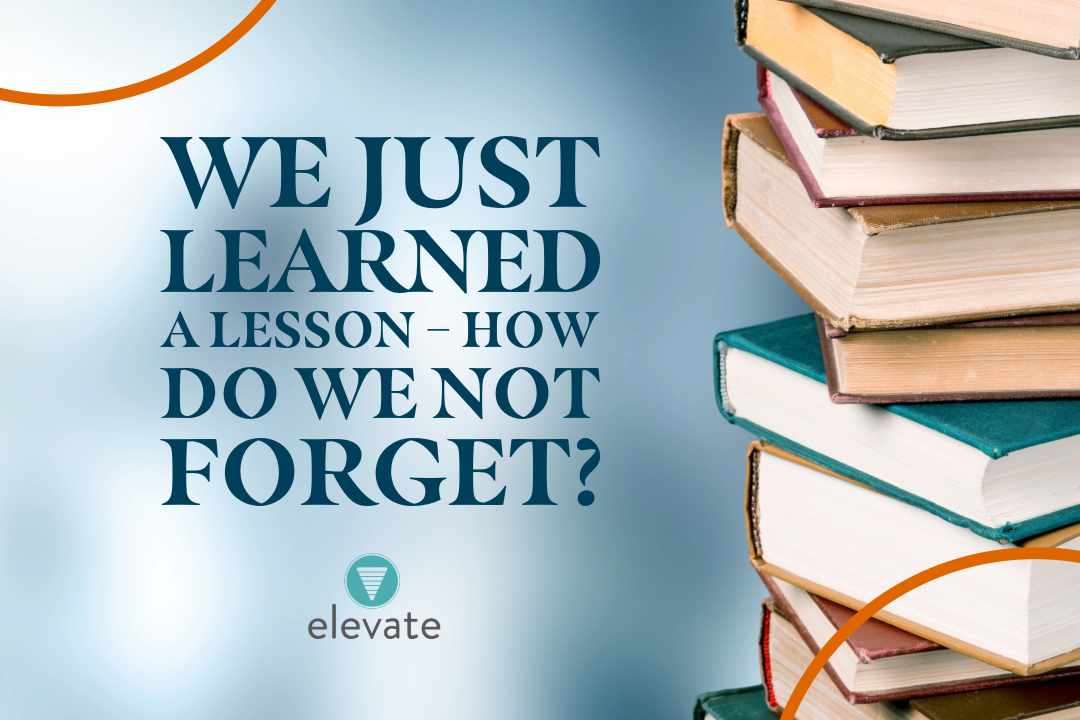
We Just Learned a Lesson – How Do We Not Forget?
While most of the thought around learning begins and ends in school, our ability and necessity to learn carries us through the rest of our lives. Because we are taught at such a young age to retain so much information, it can get tricky understanding what to keep and what to forget (I know I don’t remember a lot of the things I learned in school). As we grow and change, the necessity for a mental rolodex of dates, relationships, professional development information, songs, books, etc. increases while the proverbial room in our minds stays the same. How do we keep this information safe and readily accessible? How do we know what information is not necessary to keep on standby?
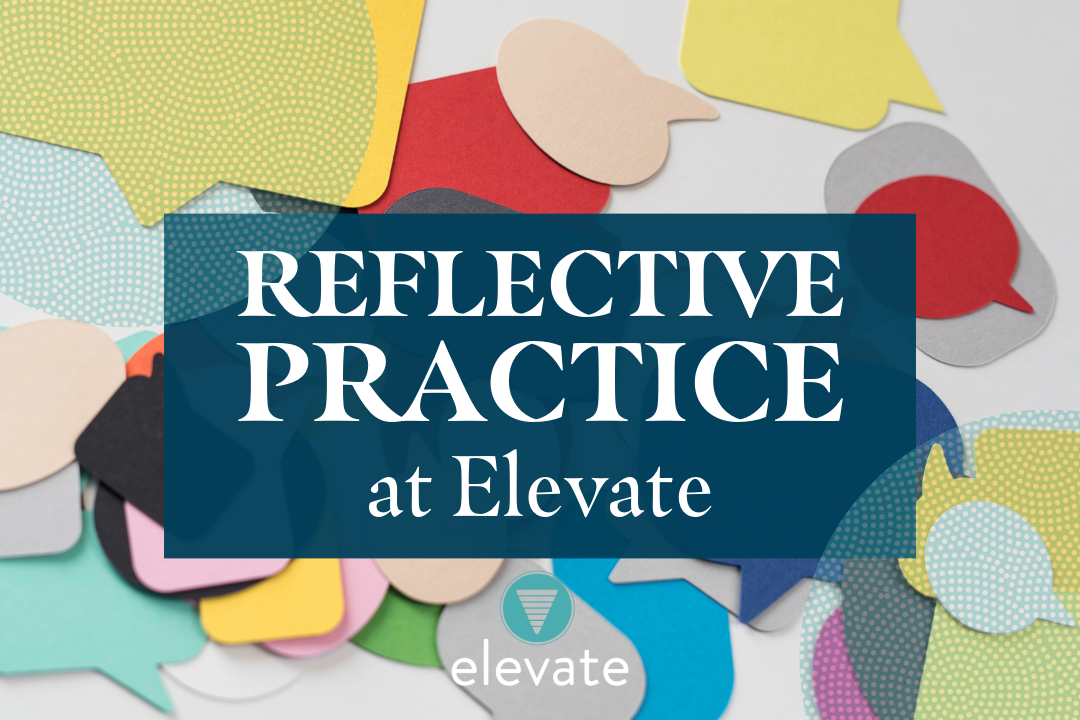
Reflective Practice at Elevate
At Elevate, we have a core value around learning. This often shows up in our external work with clients where we collaboratively learn with partners and actively look for ways to augment learning through the work we do and the deliverables we produce. Learning also plays a central role in the internal work we do as an Elevate team, and reflective practice is one tool we use to learn and grow together.

Facilitating Groups Utilizing Emergent Strategy Principles
At Elevate, we have the pleasure of working with many different groups working toward changing the systemic conditions that are creating and reinforcing marginalization and injustice. We do this in a number of spaces, from early childhood to homelessness to workforce development, and in every situation, we’re challenged by the complexity of the systems, the scope of the challenges, and the nuances of the relationships of the people in the room. These spaces require us to be not only skilled facilitators but also constant learners and scholars of the ways in which systems change can actually be brought about.
